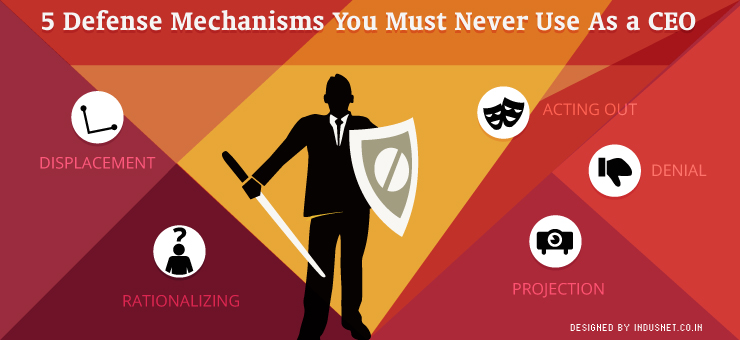
If you have ever met a person interested in psychology or human behavior, you have probably heard of defense mechanisms. A defense mechanism is an unconscious strategy used by people to meet with the demands of real life. Life poses us with a lot of challenges and psychoanalysts believe that these challenges cause psychic conflicts. When there are psychic conflicts, ego, or the part of the human mind that deals with the reality, tries to form defense mechanisms to be able to deal with situations in a better way.
Some defense mechanisms are useful and others are quite harmful. Useful defense mechanisms include altruism and sublimation. Altruism is a tendency to help others in order to avoid feelings of guilt. Sublimation is the tendency to do creative and productive activity in order to avoid negative emotions. However, there are many more pathological and harmful defense mechanisms.
In this article, let us take a look at 5 defense mechanisms that can potentially be very harmful to someone who is running a company.
Displacement
Displacement is a defense mechanism that involves a person displaying aggression on an object or a person that is not harmful. He or she may not be able to display aggression at the real cause of frustration. Thus, the person ends up displacing the anger, frustration and aggression at an object or a person who is of no harm whatsoever.
For example, a CEO may scream at his secretary when his profits are not showing up. A manager may become over critical of his subordinates when his own superiors are placing unreasonable demands on him.
Rationalizing
Rationalizing is a form of defense mechanisms in which a person offers explanations to himself, when there is none really available. When something undesirable happens or presents itself, an individual may rationalize the situation by convincing himself with a more pleasing or acceptable explanation.
For example, a CEO whose company has fared very badly may rationalize that the price of commodities are too high and thus, the company is running under losses. A web designer may rationalize a buggy website by telling himself that the developer may have coded wrongly.
Projection
Projection is a defense mechanism in which a person misattributes his own undesirable thoughts, feelings and impulses. When a person is not ready to face with his or her own feelings and emotions they may attribute it to someone else.
For example, an employee who is jealous of his colleague may think that the colleague is jealous of him. He will not be ready to accept that he is projecting his own jealousy on the other person.
Denial
Denial is one of the most common defense mechanisms used by people. This is the tendency to refuse reality because reality is harsh. It is one of the most primitive defense mechanisms and also one of the most harmful. When something is painful or disturbing to admit, we may end up saying the source of pain does not exist.
For example, a business owner whose profits have nosedived may continue to avoid looking at statistics and remain calm and composed. He just does not want to admit that the company is facing losses as that would be unacceptable for him.
Acting Out
Acting Out refers to an extreme kind of behavior that a person is incapable of expressing. A person who is unable to express his or her emotions, thoughts and feelings may just begin to scream, yell and shout.
Instead of saying “you are annoying me” or “I do not like what you do”, a manager may bang at the desk and leave the place. This is one of the more severe forms of defense mechanisms and can cause a lot of harm to both the person who is acting out and others around him or her.
Seek Therapy
If you feel you are unable to identify which defense mechanisms you are using or if you sense that your work is getting affected by your thoughts, feelings and emotions, seek therapy. A well trained psychotherapist will be able to identify which defense mechanism you are using the most and how it is affecting your professional life. Once the defense mechanisms are addressed, your professional life will begin to improve as well.